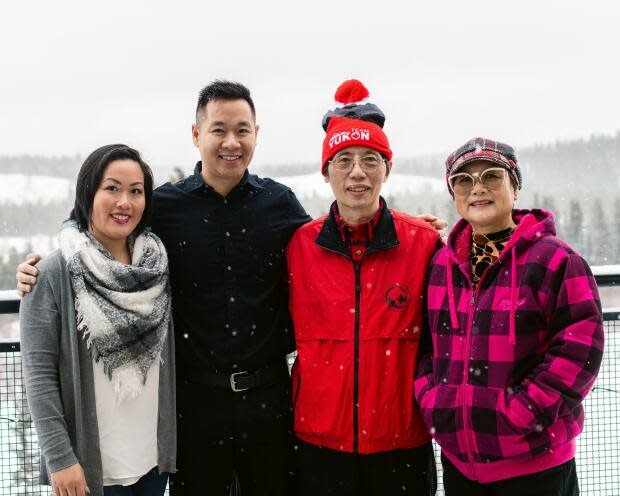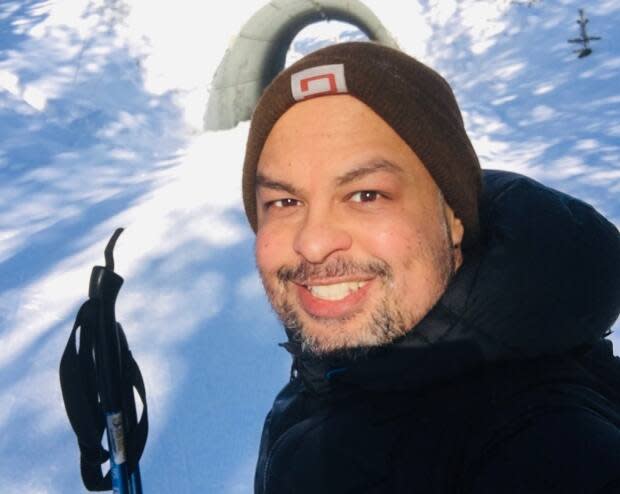Yukon not immune to anti-Asian racism, say organizers of weekend vigil

Mellisa Murray says growing up in Whitehorse, she was always aware that her Asian ancestry made her different from most of her peers, but it was still confusing to be singled out, or the target of racism.
"I didn't understand what [racism] was when I was younger. I had to learn on my own, which I don't think is right. No one ever really told me why I was being stereotyped or why I was being judged for being different," she said.
"Now that I have two kids that are two and six, I want to be able to teach them how they're different, why they're different, and being able to embrace that," said Murray.
That's part of the reason why Murray organized this weekend's "Stop Asian Hate" vigil in Whitehorse.
Similar vigils have been held around the world since last week's deadly shooting in Atlanta, Georgia, where a white gunman is alleged to have killed eight people, seven of whom were women, and six of whom were of Asian descent.
Murray says Yukon is not immune to racism and hatred directed against Asians.
"Our small community, just because it is smaller and there's a less minority of Asian culture, it doesn't mean we don't need to stand up. It doesn't mean we don't need to speak up," she said.
Pawan Bhardwaj, another one of the vigil's organizers, says he does not always feel safe in Yukon. He was born and raised in Toronto and says moving to Whitehorse was an adjustment.
"I'd be lying if I said that the experience of finding my groove and finding my space within the territory and within the city has been an easy one," he said.

Bhardwaj says most people have been welcoming to him but that's not always the case.
"I think amongst racialized communities and amongst the BIPOC community locally, we are also aware that there are certain businesses that we avoid. There are certain areas that we avoid, because it has been a breeding ground of some racialized incidents or attacks in the past," he said.
"It's a painful truth. I mean, it's not something that I think is openly talked about."
'I kind of live in fear now'
Murray says she also noticed a change last year when the pandemic began. She started seeing Facebook posts by people she knew, propagating racial stereotypes.
"I was shocked," she said.
"I haven't been attacked or anything physically, it's just kind of verbally," she said. "I kind of live in fear now because of that. I'm more aware of what I'm saying, what I'm doing in public. I kind of feel like I'm always judged, whether or not people are saying it out loud."
Bhardwaj says Saturday's vigil is a way of bringing the local community together at a difficult time. He says the Atlanta shootings, and a recent report on widespread racism against Asian Canadians since the start of the COVID-19 pandemic, are traumatizing for many people.
"At least the local Asian community, we're experiencing a lot of nervousness. We're experiencing triggers," he said.
Participants will meet at the Whitehorse United Church at 7 p.m. on Saturday, then make their way down Main Street to gather at the totem pole at the riverfront.
"We're looking at this [vigil] as an opportunity to learn from our elders, who've always taught us that when we're struggling and when we're facing adversity, when we're unsure how to process things, we come together as a community to support one another, to share our pain, to honour lives lost and to try and heal," Bhardwaj said.
"That's what the event is all about."

